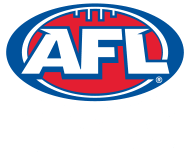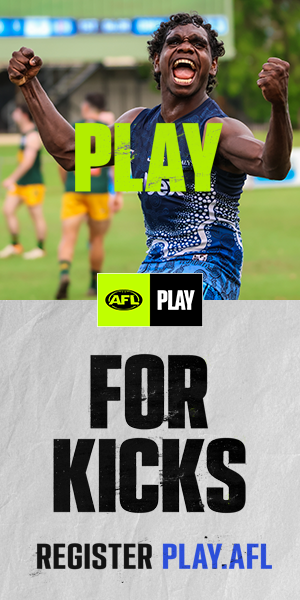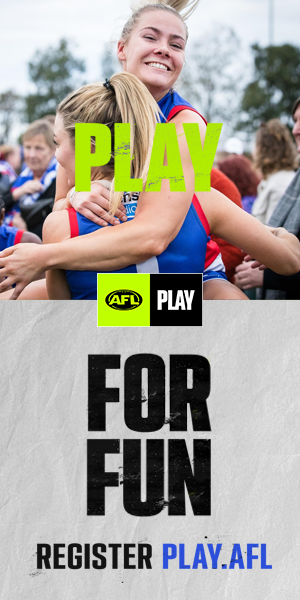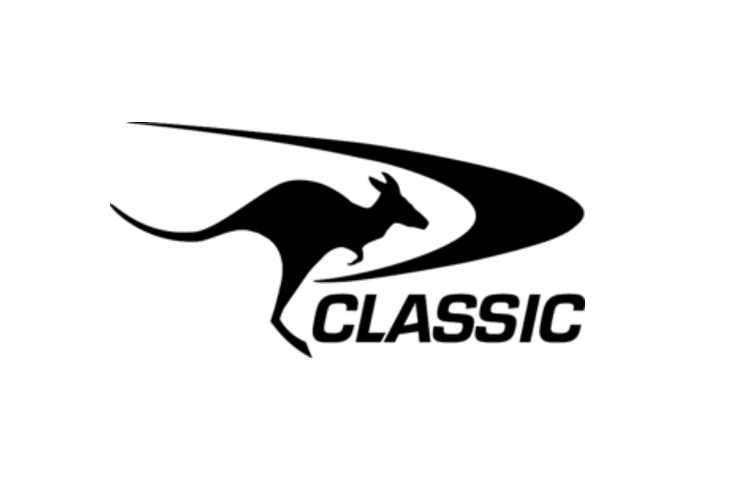When you think of Bill Peirce and Sherwood Football Club you think of loyalty and longevity. They define perfectly the man who was the son of the club president and played more than 600 games for the Magpies. He was the club’s first QAFL captain, the first Grogan Medallist, and has the club best and fairest trophy named in his honour. He has only ever lived in one suburb. Sherwood.
If you could find another “L” word that means humble it would be just as appropriate as longevity and loyalty because when AFLQ Chairman Dean Warren rang to advise him of his Hall of Fame induction his immediate reaction was “it must be the old man”.
Fair enough, too. Edwin “Bob” Peirce was a 200-gamer at Wests and secretary of the Bulldogs from a young age before moving next door to Sherwood. There he was secretary and president, and served for a long time on the QJAFL and later the SQAFA. He died four weeks short of his 88th birthday in 2012, a wonderful 60-year servant of football in the western suburbs.
One of eight children, Billy, as he was called early on, or Bill, as he prefers these days, played his first game at Sherwood at age four at Oakman Park. His coach was none other than Sherwood legend and fellow AFLQ Hall of Famer inductee Maurie McNamee.
He remembers his first game well and the beautiful story that follows. “I was tiny but I absolutely loved it. I got two free kicks for around the neck,” he said. “The first kick just rolled along the ground and through the man on the mark’s legs and went about 20 metres. Someone had handed it to me and I just kicked it immediately. The second time I realised it was a free kick and that I could take my time and kicked it better.”
Going into the last game, their team had not kicked a goal for the entire season, and the coach offered threepence for anyone who could do so. “We played like men-possessed, and somebody kicked one off the ground in the first quarter so at quarter-time every player lined up for his threepence,” Bill recalled.
“He (McNamee) probably wasn’t expecting to have to pay every kid, but whatever happened I never got paid. Not until about 40 years later, long after we’d changed to decimal currency, when I was installing a new stove at his house. We found a sixpence behind the old stove. He slapped it into the palm of my hand and said, ‘here’s your bloody threepence – and you can keep the change’.”
Working his way up through the grades at Sherwood, Peirce represented Queensland at Under 15s, State Schoolboys and the then Teal Cup (Under 17) State team, when he played against two handy types – Neale Daniher and Justin Madden. He won the premiership in every age-group from Under 9’s to Under 15’s, and in his first year of Under 17’s. They weren’t so lucky the following year when their gun midfielder broke his leg.
Always a non-drinker who wore #1 for as long as people can remember, he made his senior debut under Lindsay Jacob at 18 in 1978, and had five years for five SQAFA flags. He won the best and fairest and finished third in the SQAFA’s Duncanson Medal in 1982 before Sherwood joined the QAFL with Southport in 1983. “The move up to the top competition was everything to me … it was like a grand final every week. That’s not to say I didn’t appreciate the grand finals, but we were playing against better opposition and every win was hard-earned. Every kick was hard-earned,” he said.
In his first season in the QAFL, Sherwood finished eighth with a 7-11 record in the 10-team competition under John Rantall, with Peirce the Magpies’ standout. He was invited to the Grogan Medal dinner, a ritzy affair at Sibyl’s Night Club televised by Channel Seven. So new were the Magpies to the ‘big time’ that Peirce was accompanied only by president Ian Selvage, who sat with the ‘heavies’, and committeeman Ray Thompson, who sat with him. There were no teammates, so he had to make do with Kedron ruckman Marti Verrall and a couple of media types.
It was an unforgettable night. After a tense vote-count over 16 rounds, three players finished with 14 votes at the top of the leaderboard – Southport State team pair Peter Guy and Zane Taylor, and the Sherwood captain, Peirce, a self-confessed ‘dark horse’.
Taylor, later to win the Grogan Medal in 1985, was ineligible due to a suspension in the second-last round, but the question remained, what happens now? In 1947 Wests’ Doug Pittard had won on countback from Yeronga’s Fred Willets, and in 1969 Morningside’s Terry Johnston did likewise from Wilston-Grange’s Ken Garcia, but in 1950 Coorparoo’s Tom Calder and Sandgate’s Edgar Stevens could not be split and shared the honour.
As would later become common practice, the League ruled that Guy and Peirce would be joint winners. Peirce was delighted – not only because he’d won but because Guy had won too. “He’d had a great year and it would have been a terrible thing to happen. He looked over at me when they announced we’d share the medal with the biggest grin on his face. I’ll never forget it. We will always have that bond,” he said.
In 1987 Peirce took over as Sherwood senior coach after John Blair resigned mid-season amid financial problems. They were tough times, and his biggest weekly challenge was making enough calls on a Friday night to fill the Reserves side. “One day we went to the old Showgrounds at Southport and we only had 12 so six players from the seniors who’d arrived early doubled-up. I took them off at three-quarter time and just as I was starting my pre-match address, I heard the Reserves come in pretty happy with themselves. They’d outscored Southport in the last quarter. I nearly started crying. Even the Southport players had clapped them off. That’s what a club means to me,” he said.
He was captain-coach as Sherwood moved to the Gold Coast League in 1988 and captain in 1989-90 before Sherwood and Wests amalgamated to form West Brisbane in 1991. They adopted maroon and white colors, originally in hoops before they switched to Sherwood-style vertical stripes, and later inexplicably went back to the hoops. They played out of Chelmer and were known as the Warriors. As foreign as it was, he played at the new club from 1991-95 – two years in the seniors in three years in the reserves – and won the Bill Clerke Medal for the Reserves best and fairest in 1993.
He stepped away 12 months before the club won the premiership under Danny Craven in 1996 and were disbanded at the end of 1997, but when they were reformed as the Western Magpies in 1999, he went back. He played in the Reserves from 1999-2001 and was coach in 2002.
Still, he wasn’t finished. In 2004 he was the Magpies’ senior assistant coach, and from 2009-11 he coached the club’s third division side, finishing 1st-2nd-3rd. Never intending to play, he filled in at Robina one day against Bond University aged 51. “Before the game Ï was thinking ‘why did I ever play this game?’ but after I got a couple of kicks and the adrenalin kicked in it was ‘wow I remember why I played this game’”, he said.
In his belated football retirement, he divides his time between his electrical business ‘Electricity Bill’ and daughters Kaitlin (30) and Courtney (27), and fills in occasionally with some old mates in a mixed nine-a-side Monday night competition at Sherwood. Usually on the really cold or wet nights, or the late games. He’s a Lions member and a regular at the Gabba, and often drops into Sherwood for an extra football ‘fix’. It’s an impossible habit to quit after more than 50 years.



























































